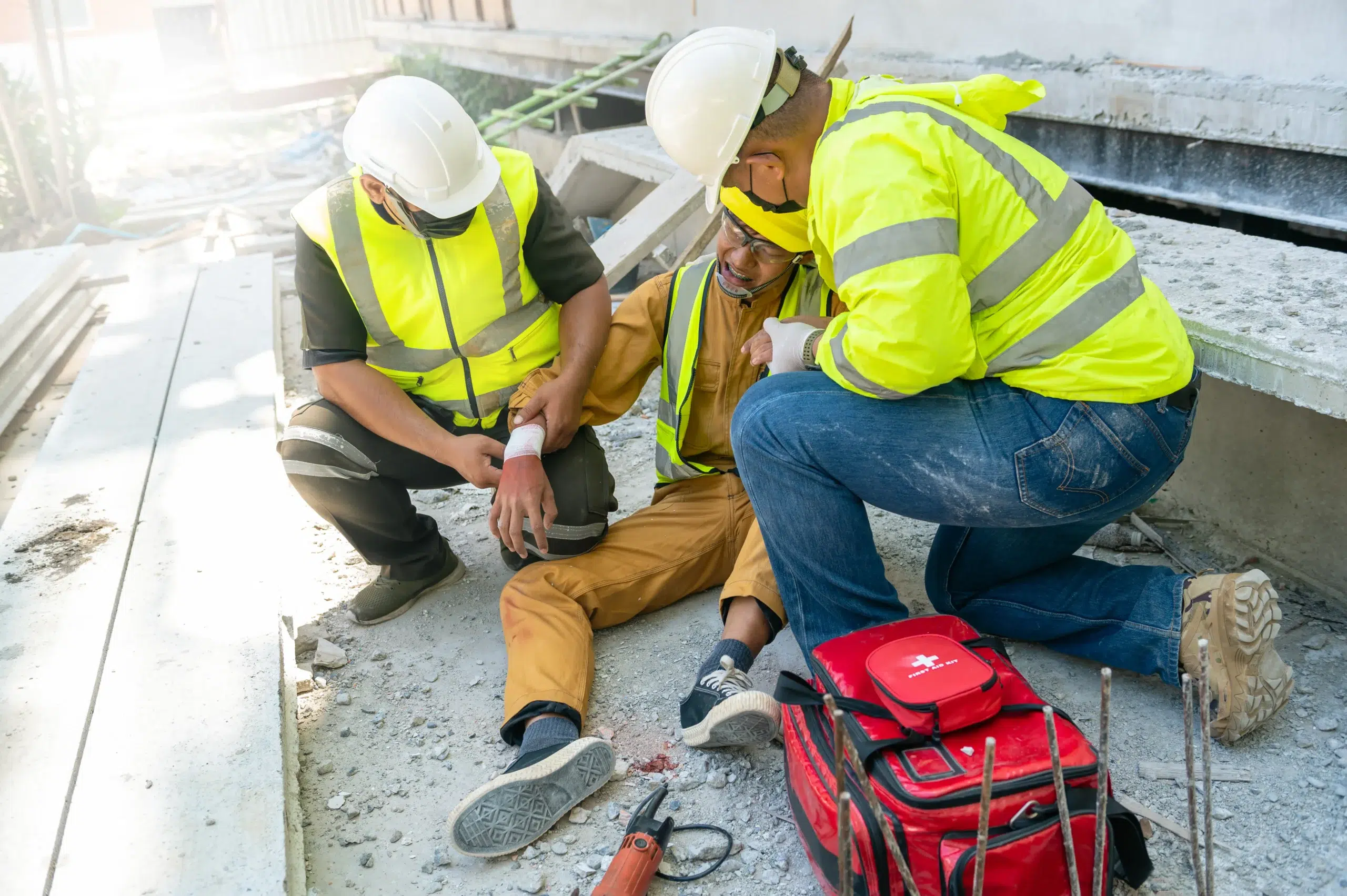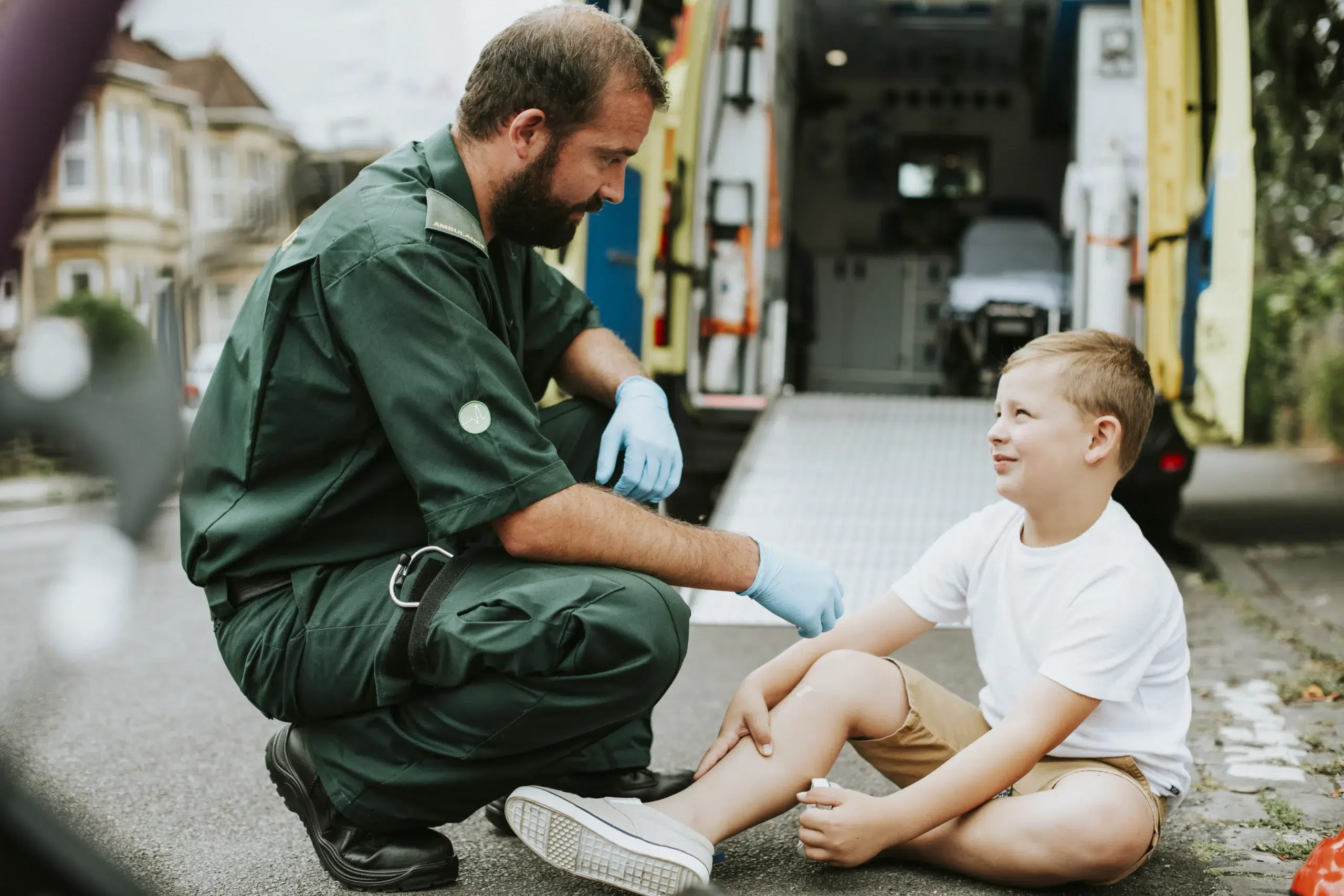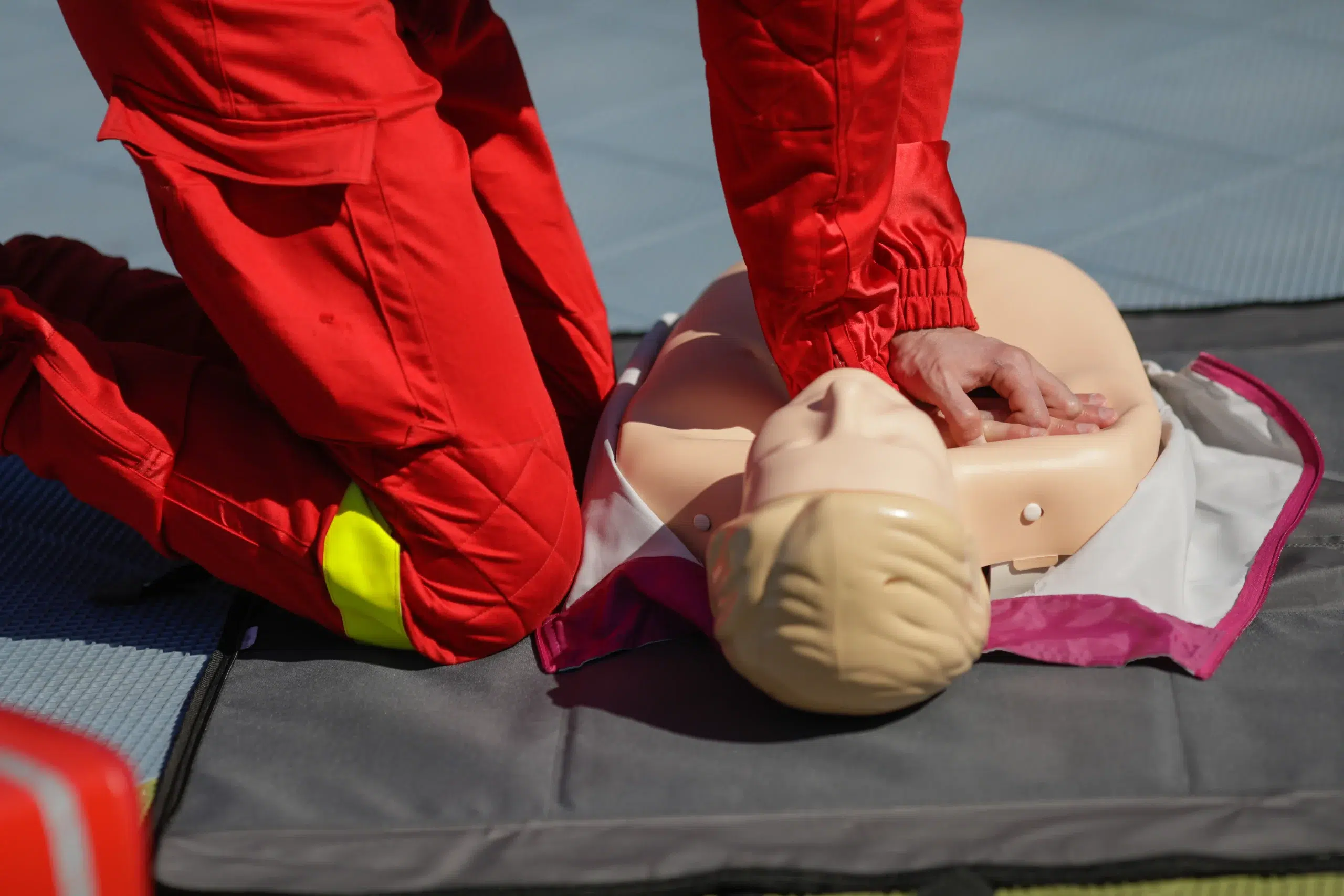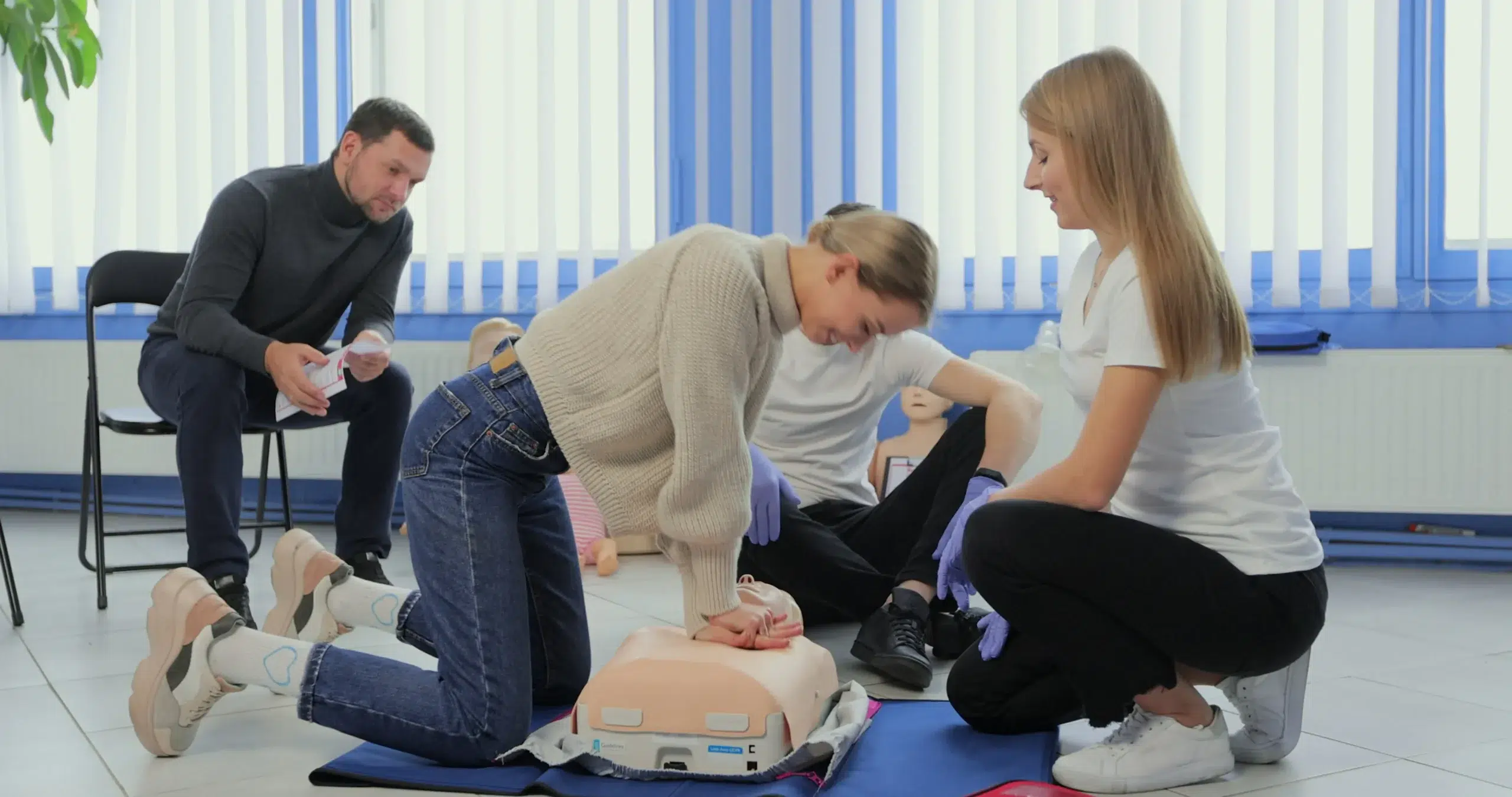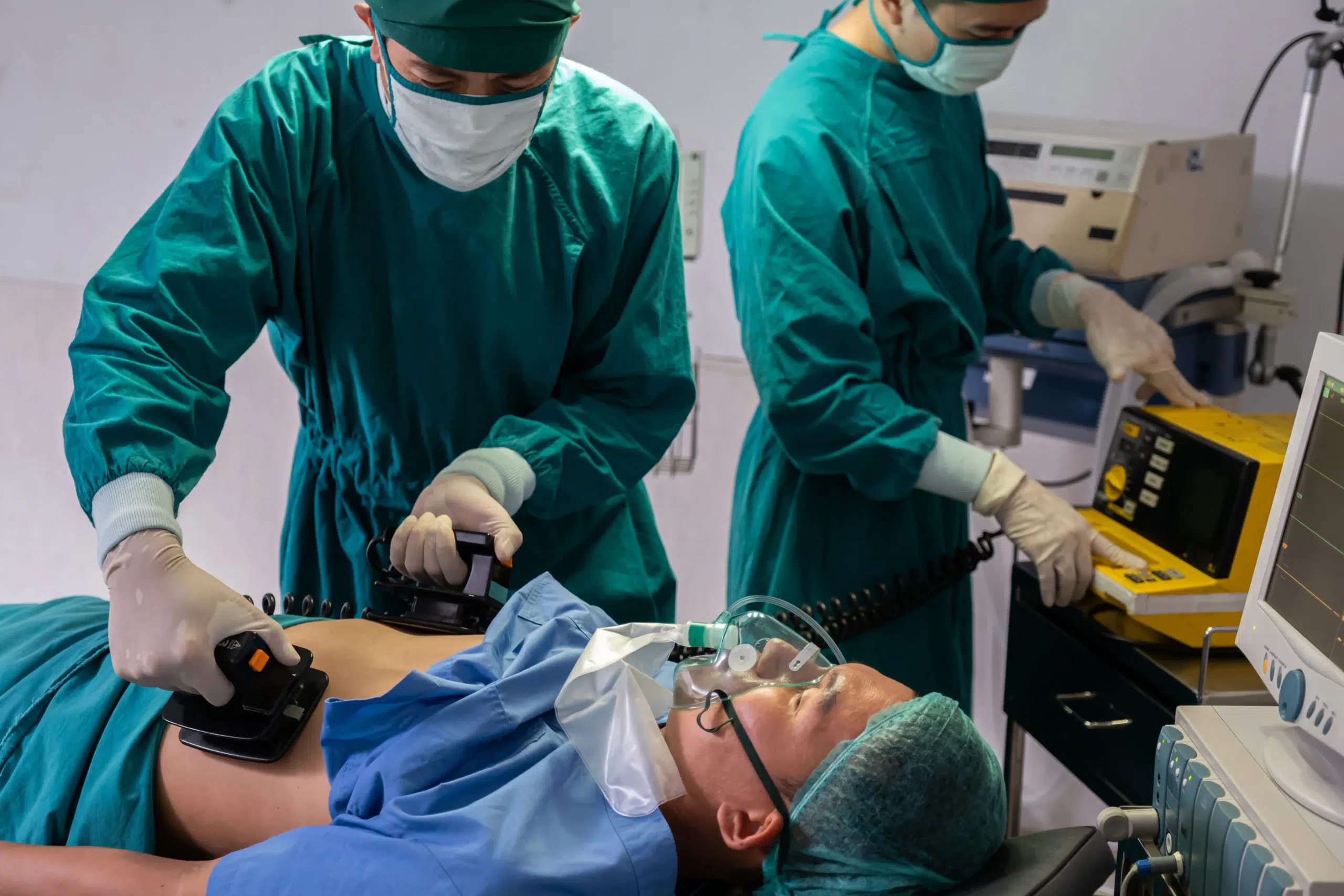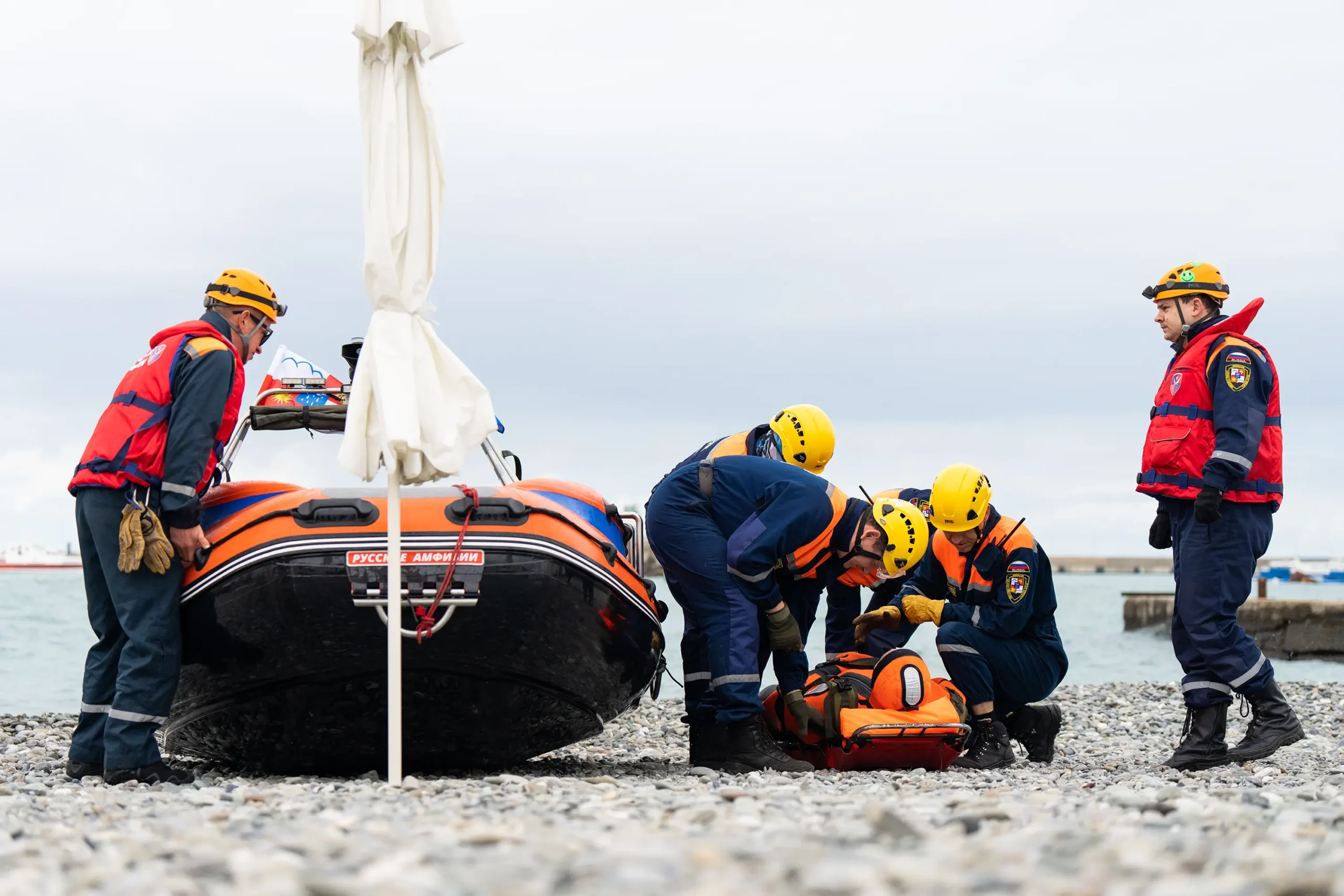In the whirlwind of parenting, amidst the school runs, playdates, and bedtime stories, it’s easy to overlook the “what ifs.” But what if your child experiences a medical emergency? Would you know how to react? CPR and first aid training empowers you to handle such situations with confidence and potentially save a life. Finding suitable cpr classes for parents in Millbrae is easier than you think. This article explores the importance of CPR training for parents, outlining the various class options available in Millbrae, what to expect during a CPR course, and how to choose the right class to fit your needs and schedule. We’ll also delve into maintaining your CPR skills, debunk common misconceptions about CPR training, and provide additional resources to support you in your journey as a prepared and informed parent.
Key Takeaways
- CPR skills empower parents: Knowing CPR and first aid allows you to confidently handle emergencies involving children and adults, at home or anywhere else. Find a course that covers adult, child, and infant CPR, along with AED training.
- Flexible CPR training options are available: Millbrae offers various CPR classes, including in-person, blended learning, and group discounts. Consider cost, schedule, and location to find the best fit. Ask about certification and course content before registering.
- Maintain your skills for ongoing preparedness: Regular practice and refresher courses are vital for keeping your CPR skills sharp. Hands-on practice and staying up-to-date on the latest guidelines ensure you’re always ready to respond effectively.
Why Parents Need CPR Training
As a parent, your child’s safety is your top priority. You childproof your home, buckle them into car seats, and teach them about stranger danger. But are you prepared for a medical emergency? Knowing CPR and first aid can give you the confidence and skills to respond effectively if your child—or anyone around you—experiences a life-threatening event. It’s a proactive step that empowers you to protect your family and potentially save a life. CPR and first-aid certification courses are available to help you prepare.
Think about the everyday situations you encounter with your kids: playtime at the park, mealtimes, even bath time. Accidents can happen in a flash. Choking, near-drowning, and sudden cardiac arrest are real risks, and knowing CPR can make all the difference in those critical first few minutes. CPR and first aid training provides you with the knowledge and skills to assess the situation, provide immediate care, and stabilize the situation until professional help arrives.
Learning CPR isn’t just about responding to emergencies with your own children. These skills are valuable in any setting, whether you’re at a family gathering, a friend’s house, or out in the community. You become a valuable resource, equipped to assist anyone who needs help, including other children, adults, or even elderly family members. CPR training empowers you to be a confident first responder in a wide range of situations. It’s about being prepared for the unexpected and having the ability to make a real difference when it matters most. Consider exploring available CPR classes to enhance your preparedness.
CPR Class Options for Parents in Millbrae
As a parent, your child’s safety is paramount. Knowing CPR and first aid gives you the confidence to handle emergencies at home, on the playground, or anywhere else your family goes. Millbrae offers a variety of CPR classes designed for parents’ needs. Let’s explore some options:
Infant and Child CPR
Infants and children react differently to emergencies than adults, so specific training is crucial. Infant and Child CPR classes cover the techniques needed to respond to choking, breathing emergencies, and other unexpected situations involving babies and young children. These courses give caregivers the skills to act quickly and effectively in time-sensitive situations. You’ll learn to assess a child’s condition, perform age-appropriate CPR, and provide basic first aid until professional help arrives. For more information on pediatric CPR and first aid classes in Millbrae, check out this resource.
Adult CPR and First Aid
While your focus is naturally on your children, knowing Adult CPR and First Aid is equally important. Emergencies can happen anytime, and being prepared to assist an adult—a family member, friend, or stranger—is invaluable. Several providers in Millbrae offer comprehensive courses covering CPR, Basic Life Support (BLS), Advanced Cardiovascular Life Support (ACLS), and Pediatric Advanced Life Support (PALS) through the American Heart Association (AHA). These certifications prepare you to handle various emergency scenarios, from a simple cut to a life-threatening cardiac event.
Pediatric First Aid and CPR
Some courses combine Pediatric First Aid and CPR instruction for a well-rounded approach to child safety. These classes cover everything from treating minor injuries like cuts and scrapes to responding to serious situations like choking, allergic reactions, and breathing difficulties. AHA-certified courses are available through local providers, letting you choose the best fit for your schedule and needs. This combined approach ensures you’re prepared for a wide range of pediatric emergencies.
Blended Learning Options
Balancing parenting with other commitments can make finding time for in-person classes difficult. Blended learning BLS courses offer a flexible solution by combining online learning with in-person skills practice. Complete the coursework at your own pace, then attend a shorter in-person session to practice your skills and get certified. Many training centers offer discounts on these courses, making them a convenient and affordable option.
What to Expect in a CPR Class
So, you’ve decided to take a CPR class—fantastic! Knowing what to expect can help you feel prepared and confident. Here’s a glimpse into a typical CPR class:
Class Structure and Duration
CPR classes blend instruction and hands-on practice. Your instructor will explain the techniques, demonstrate them, and then guide you as you practice. Most classes adhere to American Heart Association (AHA) guidelines, covering adult, child, and infant CPR, along with AED use and choking relief. Classes typically run between two and four hours, depending on the specific course you choose. This timeframe allows ample time to cover the material thoroughly and gives you plenty of opportunities to practice.
Hands-on Practice
Hands-on practice is the core of any good CPR class. You’ll work with realistic manikins designed for adult, child, and infant CPR practice. This allows you to get comfortable with chest compressions, rescue breaths, and proper hand placement. Many classes also include AED training, giving you a chance to familiarize yourself with the device and how it’s used in emergencies. Don’t hesitate to ask questions—your instructor is there to help you master these life-saving skills. The goal is for you to feel confident and prepared to respond effectively in a real-life situation. Millbrae CPR Classes offers hands-on training with experienced instructors.
Certification
After successfully completing the course and skills check, you’ll receive an official American Heart Association (AHA) certification card. This certification is widely recognized and valid for two years. It’s a valuable credential to have, demonstrating your commitment to safety and preparedness. Remember to keep your certification current by taking a refresher course before it expires. This ensures your skills stay sharp and you’re always ready to help in an emergency.
CPR Class Costs & Scheduling in Millbrae
Finding the right CPR class means considering several factors, including cost, schedule, and location. Let’s break down what you can expect in Millbrae.
Class Pricing
CPR certification costs vary based on the course and the training provider. Basic CPR and First Aid classes typically start around $75, while more advanced courses like ACLS or PALS range from $150 to $250. Check with specific providers like Millbrae CPR Classes for their latest pricing and any available discounts. See if they offer a low price guarantee.
Group Discounts & Family Packages
If you want to train with a group, like other parents or your family, ask about group discounts. Many providers offer reduced rates for group bookings. Some also offer family packages, a convenient and cost-effective way for everyone at home to get certified. Contact Millbrae CPR Classes to learn more about group discounts.
Class Times & Locations
CPR classes in Millbrae accommodate various schedules. Many providers offer weekday and weekend options, including evening classes. Classes are held throughout Millbrae, at dedicated training centers and community facilities. Millbrae CPR Classes offers courses at 475 El Camino Real, Suite 413, Millbrae, CA 94030, with daily classes available. They also offer on-site training—they can come to your location for group training. This works well for larger groups or organizations.
Choosing the Right CPR Class
Factors to Consider
When selecting a CPR class, think about your specific needs. As a parent, CPR training equips you to handle emergencies involving your children. It’s not just about learning the skills; it’s about developing the confidence to act quickly and effectively if your child (or anyone) experiences a medical emergency like a sudden cardiac arrest. Cost is another factor. CPR certification shouldn’t break the bank, so look for a class that offers quality instruction at a reasonable price. Check out Millbrae CPR Classes’ Low Price Guarantee. Convenience matters too. Millbrae CPR Classes offers classes daily, and they can even come to you for group training, making it easier to fit training into your busy schedule.
Questions to Ask
Before signing up for a CPR class, asking a few key questions can help you find the perfect fit. First, determine what type of CPR certification you need. Do you need adult and pediatric CPR/AED and First Aid? Or are you a healthcare provider looking for BLS, ACLS, PALS, or RQI certification? Millbrae CPR Classes offers a range of AHA-certified courses to meet different needs. Second, consider the class format. In-person classes provide hands-on training and direct interaction with the instructor. Blended learning options, combining online coursework with in-person skills sessions, offer more flexibility. While online courses can cover the basics, remember that the American Heart Association requires an in-person skills assessment for certification. So, if you choose a blended learning format, make sure the in-person portion fits your schedule.
Top CPR Training Providers in Millbrae
Finding the right CPR training provider is an important step. Here’s a rundown of some options in Millbrae to help you in your search:
Millbrae CPR Classes
Millbrae CPR Classes offers a comprehensive range of American Heart Association courses, including CPR, First Aid, BLS, ACLS, and PALS. They offer daily classes and can also conduct group training at your location, making them a convenient choice for busy parents or community groups. For more information on their CPR and First Aid certifications, visit the Millbrae CPR Classes website.
Safety Training Seminars
Safety Training Seminars has provided CPR training since 1989. They offer American Heart Association-certified courses in CPR, First Aid, BLS, ACLS, and PALS. This long-standing presence in the community speaks to their experience and commitment to safety training. You can find their class schedules and course details on the Millbrae CPR Classes website.
American Red Cross
While the nearest American Red Cross CPR training is in nearby Burlingame, it’s still a viable option for Millbrae residents. The Red Cross offers CPR classes and certification, meeting OSHA requirements, making them suitable for workplace training. Their small group instruction allows for personalized attention and hands-on practice.
American Heart Association
While the American Heart Association doesn’t directly offer classes, they set the standards for CPR training. Many local providers, including Daly City CPR Classes, offer AHA-certified courses. This gives you the flexibility to choose a class time and location that works for you while ensuring you receive high-quality instruction.
Local Hospitals & Community Centers
Local hospitals and community centers often offer CPR classes. These classes can be a more affordable option and often cater to community needs. Check with your local hospital or community center for upcoming CPR class schedules.
CPR Training Myths
Let’s clear up some common misconceptions about CPR training. These myths can prevent people from learning this lifesaving skill, so let’s debunk them:
“CPR is Only for Professionals”
One of the biggest myths is that CPR is only for doctors, nurses, or EMTs. The truth is, anyone can learn CPR. High-quality CPR training programs like ours at Millbrae CPR Classes are designed to give everyday people the skills and confidence to act in an emergency. You don’t need a medical background to be a lifesaver. Our classes empower you to make a real difference.
“CPR is the Same for All Ages”
CPR techniques are not one-size-fits-all. Infants, children, and adults have different physiological needs, and CPR must be adapted accordingly. Our infant and child CPR course covers these crucial distinctions, teaching you the correct procedures for each age group. This specialized knowledge ensures you can provide effective assistance no matter who needs help.
“CPR Training Isn’t Necessary With a Phone”
While calling 911 is essential in an emergency, it’s not a replacement for CPR. Every second counts during a cardiac arrest, and immediate CPR can significantly improve the chances of survival while waiting for professional responders. Our CPR and First Aid certification courses emphasize the importance of immediate action. Don’t rely solely on your phone; empower yourself with the skills to take direct action.
Preparing for Your CPR Class
So, you’ve signed up for a CPR class—fantastic! Taking this step shows you’re committed to being prepared for emergencies. To make the most of your training, a little preparation goes a long way. Here’s what you should know before you go:
What to Bring
CPR classes typically run between two and four hours, depending on the specific course. Plan on being there a while, so bring a few things to ensure you’re comfortable. Dress in layers; classroom temperatures can be unpredictable. Since CPR involves hands-on practice, wear comfortable clothing that allows for a full range of motion. You’ll be moving around and kneeling on the floor. A small notebook and pen can be handy for jotting down notes or questions. And don’t forget a water bottle to stay hydrated, especially during those more physically demanding practice sessions.
Pre-class Study Materials
Many CPR courses now use a blended learning format, combining online materials with in-person instruction. Often, you’ll receive pre-class study materials, like videos or online modules. Take the time to review these—it can make a real difference. Watching these videos can boost your understanding of the material and significantly improve your chances of passing the skills test. Think of it as a sneak peek that lets you familiarize yourself with the techniques before practicing on a mannequin. This preparation will not only increase your confidence but also help you absorb the in-person instruction more effectively. You’ll walk into class feeling prepared and ready to learn.
Maintaining Your CPR Skills
Once you’ve earned your CPR certification, staying sharp on your skills is essential. Regular practice and refresher courses will help ensure you’re prepared to act quickly and confidently in an emergency.
Refresher Courses
CPR guidelines and best practices evolve, so staying current is crucial. Renewal courses are designed for those whose certifications are expiring or have recently lapsed. Many training centers, like Millbrae CPR Classes, offer various American Heart Association courses, including BLS, ACLS, PALS, and NRP. These refresher courses cover core concepts like CPR, using an AED, and relieving choking. You can often find discounts on these courses, making it easier to stay up-to-date. Check with local providers or browse online for options.
Practice at Home
Hands-on practice is key to building and maintaining muscle memory for CPR. While in-person classes offer training mannequins, you can continue practicing at home. Consider buying an inexpensive CPR practice manikin to refresh your skills on proper hand placement and compression depth. Even practicing the motions without a manikin can reinforce the techniques. Visualize the steps and mentally walk through the process, focusing on chest compressions, rescue breaths (if applicable to your certification level), and checking for responsiveness. Regularly reviewing the material and practicing the techniques will build your confidence and better prepare you to respond effectively in a real emergency.
Additional Resources for Parents
As a parent, your child’s safety is paramount. Equipping yourself with essential safety knowledge and skills creates a secure environment for your family. Beyond CPR certification, exploring additional resources can further enhance your preparedness and connect you with a supportive community.
Local Support Groups
Connecting with other parents creates a valuable network for sharing experiences and information. Millbrae offers various local support groups focused on safety and wellness, including CPR and First Aid discussions. These groups provide a platform to discuss safety concerns, share tips, and learn from each other. Check with local community centers, libraries, or parent-teacher associations for groups in your area. For a helpful guide to CPR resources in Millbrae, including information on local support groups, take a look at this article from Daly City CPR Classes.
Family Safety Courses
Expanding your safety knowledge beyond CPR significantly contributes to your family’s well-being. Safety Training Seminars offers various safety courses in Millbrae, covering topics like basic first aid, home safety, and emergency preparedness. Consider taking these courses as a family to ensure everyone is prepared. Daly City CPR Classes also offers various CPR and first-aid courses designed for parents, including BLS, ACLS, PALS, and NRP certification. This flexibility lets parents choose courses that fit their schedules and needs. Learning together creates a fun, educational experience for the whole family, fostering a culture of safety and preparedness at home.
Related Articles
- Pediatric CPR & First-Aid Classes in Daly City – Millbrae CPR Classes
- Childcare CPR Certification: Millbrae Courses & Requirements – Millbrae CPR Classes
- Pediatric CPR & First Aid Classes in San Mateo – Millbrae CPR Classes
- Why CPR is Crucial in Healthcare
- The Importance of CPR in Saving Lives – Millbrae CPR Classes
Frequently Asked Questions
Why is CPR training important for parents? CPR training empowers parents to respond effectively in medical emergencies involving their children or anyone around them. Accidents can happen anytime, and knowing CPR can make a crucial difference in those critical first few minutes before professional help arrives. It equips parents with the skills to assess the situation, provide immediate care, and potentially save a life.
What kind of CPR classes are available for parents in Millbrae? Millbrae offers various CPR classes tailored to parents’ needs, including Infant and Child CPR, Adult CPR and First Aid, and combined Pediatric First Aid and CPR courses. Blended learning options are also available, combining online coursework with in-person skills practice for added flexibility. Many providers offer these courses, ensuring a convenient option for every parent.
How much do CPR classes typically cost, and are there any discounts available? CPR class costs vary depending on the course type and provider. Basic CPR and First Aid classes usually start around $75, while more advanced courses like ACLS or PALS can range from $150 to $250. Many providers offer group discounts and family packages, making it more affordable for families to train together. Contacting specific providers directly is the best way to get accurate pricing and inquire about any available discounts.
What can I expect during a CPR class, and how long does it typically last? A typical CPR class involves a combination of instruction and hands-on practice. Instructors explain and demonstrate the techniques, then guide you as you practice on realistic manikins. Most classes follow American Heart Association (AHA) guidelines, covering adult, child, and infant CPR, AED use, and choking relief. Classes generally last between two and four hours, providing ample time for thorough instruction and practice.
How can I maintain my CPR skills after completing the certification course? Regular practice and refresher courses are key to maintaining your CPR skills. Consider purchasing an inexpensive practice manikin for at-home practice or even mentally rehearsing the steps. Refresher courses are recommended to stay updated on the latest guidelines and best practices. Many training centers offer these courses, ensuring you can easily maintain your certification and confidence in responding to emergencies.
